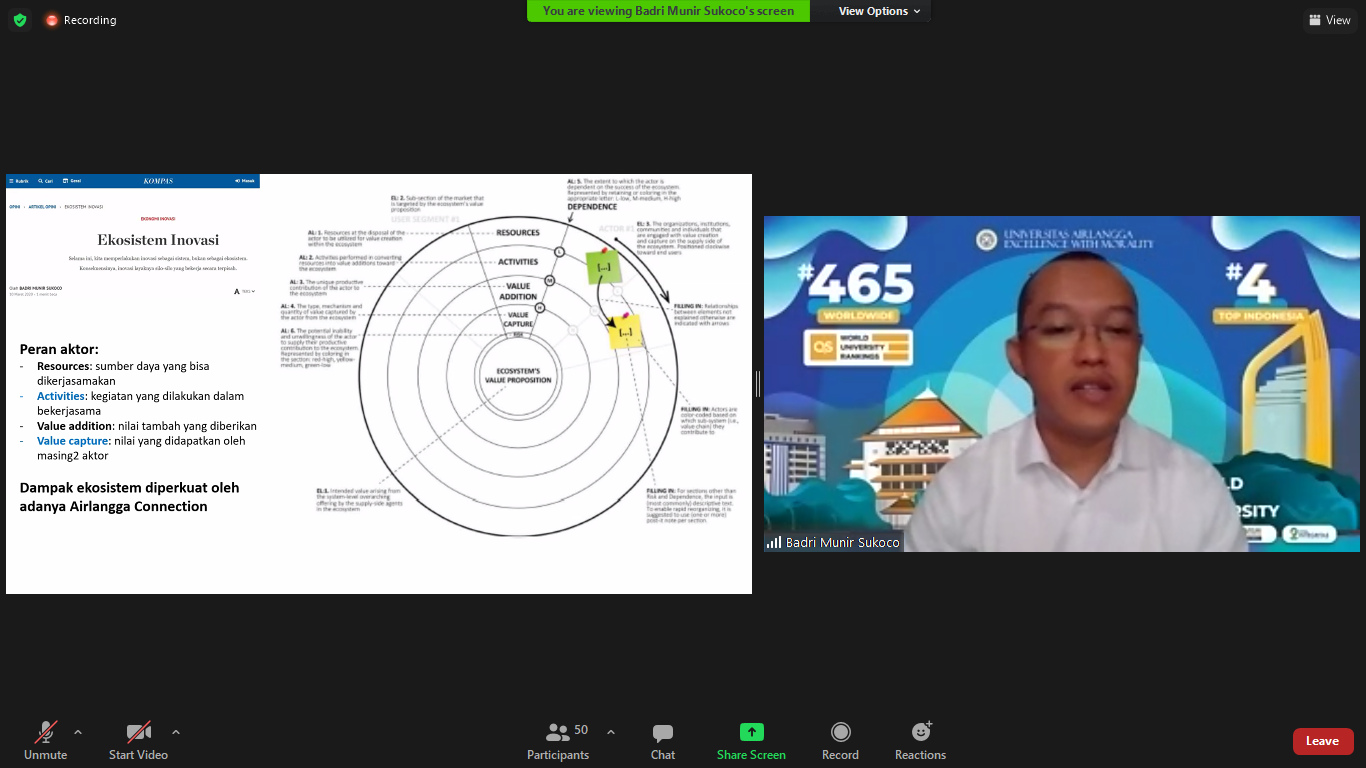UNAIR NEWS – Universitas Airlangga’s Alumni Association (IKA UA) held an internal alumni webinar entitled “Opo Karepe Alumni Ambek IKA UA (What are Expected from Alumni and UNAIR Alumni Association)” with Prof. Badri Munir Sukoco, SE, MBA., Ph.D on Saturday afternoon, June 19, 2021, after the official announcement of eight candidates for IKA UA Chairman for the 2020-2025 period.
In his presentation, the Director of Postgraduate School said IKA UA is a brand community formed among Universitas Airlangga alumni to provide social change to UNAIR and the community by modeling the Innovation Ecosystem.
“Brand community is a special community not geographically bound, based on a structured set of social relationships so that it can make changes to UNAIR alumni and they can synergize with each other,” he said.
Furthermore, Prof. Badri believes that the Innovation Ecosystem model needs to be implemented in IKA UA to develop alumni while strengthening the Airlangga Connection. According to him, the innovation ecosystem model consists of four dimensions, Resources (R), Activities (A), Value-Added (VA), and Value Capture (VC), all of which synergize to bind each other to grow the innovation ecosystem.
“I see that IKA UA can actually act as an ecosystem, an ecosystem consisting of various actors that can complement each other according to the current field of works,” explained professor of the Faculty of Economics and Business (FEB).
Prof. Badri also stated that IKA UA could be a place for co-creation. Co-creation is an innovation created jointly by business people, in this case, UNAIR alumni. According to him, co-creation is divided into two, co-consumption and co-production.
“Then I also see that IKA UA is a place for co-creation. In my research, I say that there are two co-creations, co-consumption, and co-production. The co-consumption is that alumni can create a basic community for their own businesses. Co-production alumni can create new values with UNAIR through the MBKM program, accommodate student internships, teaching alumni, and start-ups for UNAIR research downstream process,” he said.
At the end, Prof. Badri concluded that cohesiveness and solidarity between IKA UA and internal members and UNAIR leaders is an absolute must. Moreover, according to him, Central Board (PP) IKA UNAIR can go on in the future with latest alumni data collection, creation of an alumni database, provision of alumni forums according to their respective interests and professions, as well as creating real programs that all members can implement.
“Everything will be accommodated when IKA UA is managed like an ecosystem (community) of alumni that complement and strengthen each other,” he concluded.
Author: Adelya Salsabila Putri
Editor: Khefti Al Mawalia





